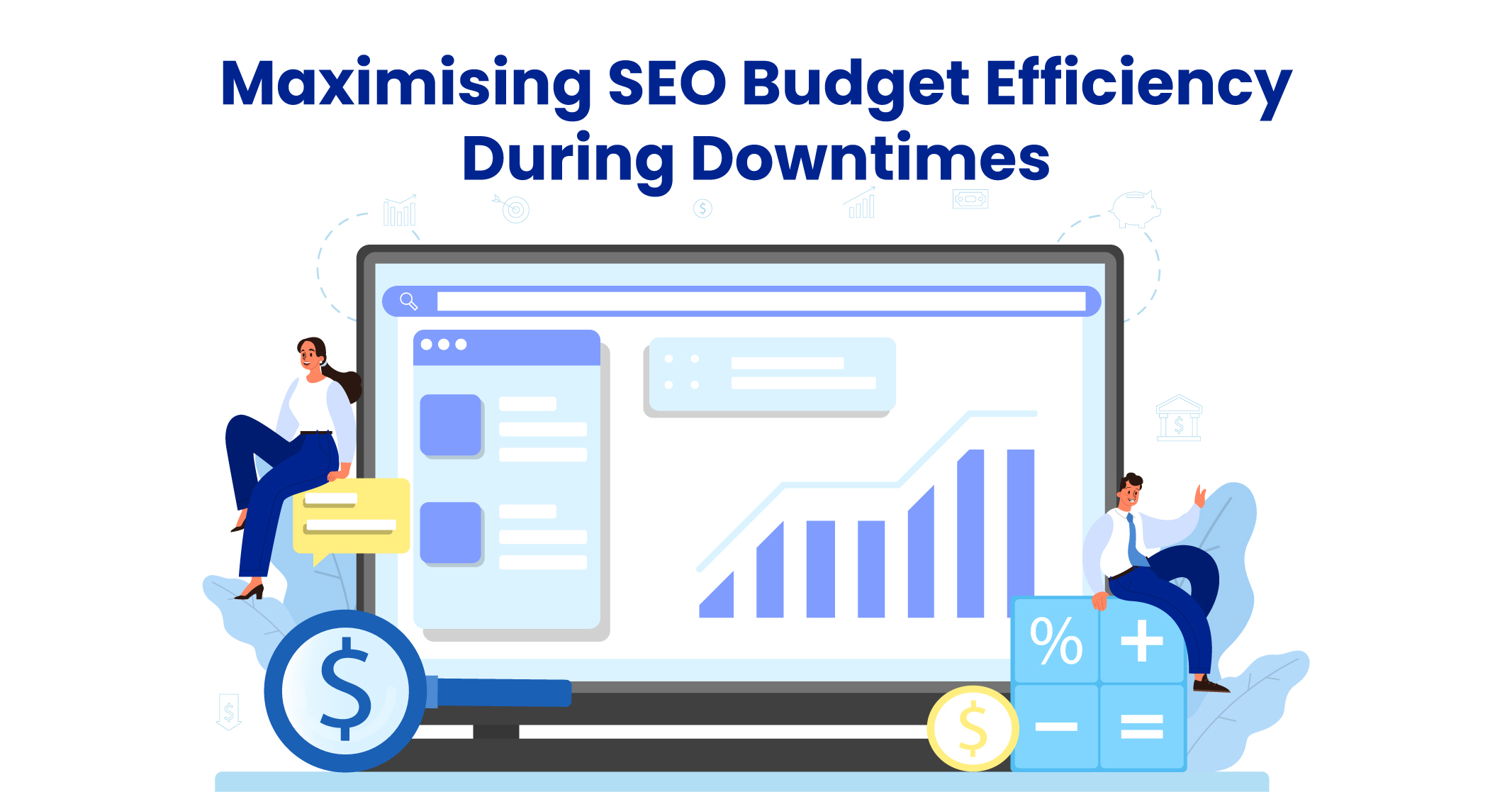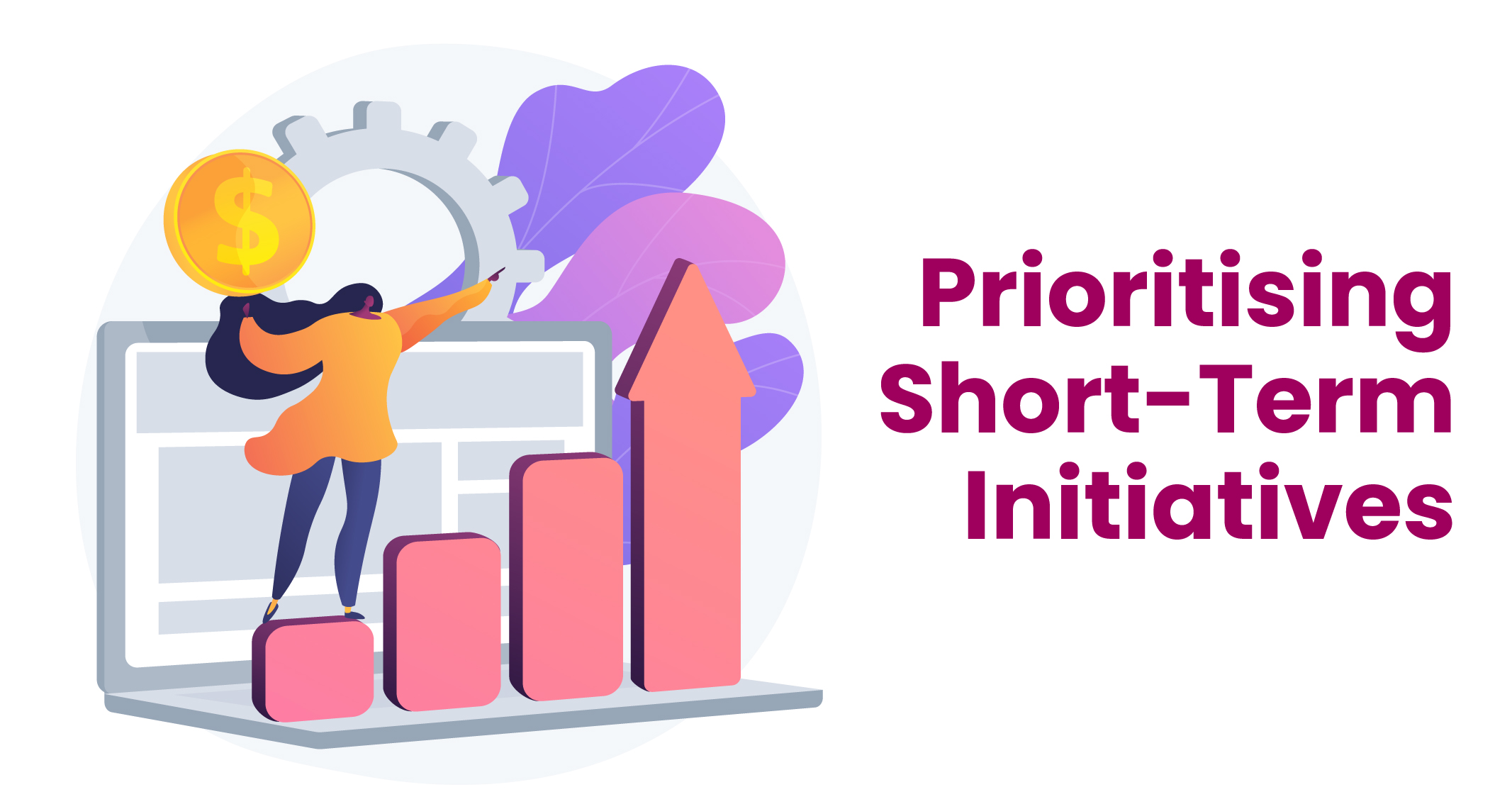I hope you enjoy reading this blog post.
If you want to get more traffic, Contact Us

Click Here - Free 30-Minute Strategy Session
Be quick! FREE spots are almost gone for this Month. Free Quote

As experienced SEO professionals, we have encountered challenging times before. These periods of economic downturn, budget constraints, and unforeseen circumstances can significantly affect our SEO strategies templates and limit our resources.
During such times, it is crucial to draw wisdom from the past and find ways to optimise our strategies, making them leaner and more efficient. Although SEO budgets may be affected by various factors like recessions, pandemics, or local/global situations, there are seven essential actions to take when faced with a smaller SEO budget. These steps can help maximise the impact of the resources available.

Click Here – Free 30-Minute Strategy Session
Be quick! FREE spots are almost gone for this Month
While we sincerely hope you don’t have to face this scenario, we encourage you to leverage these strategies to achieve the best possible outcomes within your limitations.
Let’s explore these key tactics:
It is crucial to recognise that factors impacting budgets are closely tied to business and market conditions, particularly understanding their effects on demand. If you are working on the brand side or within an agency or consultancy specialising in a specific industry, you may already have some insights into these impacts.
However, when facing reduced or cut SEO budgets and the need to accomplish more with less, it becomes essential to conduct a thorough analysis. This analysis aims to understand if there has been an overall decrease in demand for your product, service, or market.
It is important to investigate whether fewer people are actively searching if there is a decline in the number of individuals progressing through the sales funnel or customer journey, or if there are any newly identified points of drop-off that were previously unseen.
To address these challenges effectively, it is crucial to develop a well-thought-out SEO budget plan and leverage budget-friendly SEO tools. By carefully examining the market conditions and adjusting your strategies accordingly, you can make informed decisions and optimise your SEO tips and efforts within the limitations of your budget.
Learn More: Top 20 Small Business SEO Tips
In addition to analysing demand, it is crucial to take a broader perspective and revisit your goals. When faced with reduced budgets or limited resources, it is essential to reevaluate your expectations and communicate effectively with stakeholders.
Consider whether you can achieve the same level of output with fewer financial resources. Can you still drive SEO success with fewer internal and external support? Even if market demand remains stable, cutting back on content, technical support or SEO research and strategy is likely to impact the outcomes and results.
Take the time to reassess your goals, ensuring they are objective and aligned with your budget and available resources. If you are expected to accomplish more with fewer resources, it’s important to acknowledge and embrace this challenge from the outset.
Fortunately, leveraging AI can be a valuable tool for accomplishing more with limited resources. Make smart and quality use of AI to utilise simple SEO tips for better rankings.
Remember, by redefining your goals, effectively communicating them, and utilising AI tools, you can navigate the challenges of working with reduced budgets while still striving for improved rankings and success in your SEO endeavours.
Learn More: Project Magi: The Future of AI-Driven Search Tools

This tip, although not always preferred, holds significant importance. While the principle of “more is better” typically applies to high-quality content, features, functionality, and customer journey paths, there are times when a limited digital footprint becomes necessary.
In situations of resource constraints or when focusing on specific budgets and objectives, it becomes crucial to streamline and scale back. If there is a decrease in market demand, the key is to concentrate on areas where people are actively searching and have existing needs.
To address this, it may be necessary to narrow down your topic and keyword list, focusing on the most crucial part of the sales funnel or the most profitable product or service offering. By adopting a more targeted approach and working with fewer resources, you can also reduce the overall website resource requirements.
In such circumstances, it becomes essential to make strategic and tactical decisions that may not have been necessary during times of abundance. It might not be feasible to optimise an entire website, so it becomes vital to narrow down your focus and concentrate on specific sections, sub-sections, subdomains, or even microsites that align with your objectives.
By making deliberate choices and prioritising attention in specific areas, you can effectively optimise the available resources and achieve the desired outcomes within the constraints of the situation.
Learn More: Optimizing Your E-commerce Funnel
Executing SEO as a sole individual wearing multiple hats is nearly impossible, unless in exceptional cases. It demands a range of resources such as IT support, web developers, UX specialists, content writers, brand strategists, legal/compliance professionals and management approvals. It’s worth noting that there may be additional roles beyond the list.
In the early 2000s, one person could handle around 80% of SEO tasks independently. However, the landscape has evolved and collaboration has become more critical for good reasons.
However, during periods of reduced budgets, it becomes essential to meticulously priorities where the remaining resources are allocated. In some instances, these decisions may be imposed upon individuals. Nonetheless, if there is still some degree of control, it becomes crucial to determine where the budget and resources should be focused.
This might entail prioritising content creation over technical updates, or allocating resources towards technical aspects rather than UX improvements. Alternatively, CRO (Conversion Rate Optimisation) could take precedence over link-building activities. It is crucial to make intelligent decisions, align them with the updated strategy and goals, and ensure that resource deployment is optimised without overwhelming oneself.
It is also pertinent to consider how much does SEO cost in Australia and identify budget-friendly SEO tips and tools that can aid in achieving desired results within the allocated resources. By being strategic and judicious in resource allocation, one can navigate the challenges of limited budgets while maximising the impact of Google’s SEO budget and efforts.

Short-term gains can be achieved based on market conditions, goals, and the level of budget restrictions. The extent of these factors will guide the decision-making process.
In cases where budget allocation is significantly limited, it becomes crucial to prioritise the highest opportunity and priority items. While this may seem obvious, it is important to remember that SEO is a vast and intricate field, often leading to distractions and rabbit trails.
Maintaining discipline is essential. It is necessary to have a clear understanding of short-term objectives and focus on achieving them, while temporarily setting aside long-term considerations. If the goal is to sustain operations, achieve a short-term return on investment and navigate through the current season until budgets increase again, it is advisable to concentrate on strategies that offer the best chances of immediate success.
This can involve emphasising local SEO, establishing partnerships or affiliations for content promotion, targeting bottom-of-the-funnel keywords and content, or implementing a comprehensive SEO approach on a condensed list of topics or terms.
By staying focused, pursuing short-term objectives, and strategically deploying resources, it is possible to drive positive outcomes even with limited budgets.

In scenarios where there is room to consider long-term strategies or when experiencing a decrease in demand but still having an SEO budget, it becomes possible to invest in initiatives that will lay the foundation for the future.
By maintaining a long-term focus and strategy, it is possible to gain an advantage over competitors who may have entirely cut their budgets or are solely focused on short-term objectives, even in the absence of immediate demand.
Based on past experiences with clients during downturns, collaborative efforts were undertaken to invest in longer-term strategies, enabling them to emerge as industry leaders when demand eventually rebounded, despite the initial slowdown.
If there is some budget available and a desire to adopt a future-oriented approach even during a period of decreased demand, it is advisable to allocate resources towards enhancing website technology, improving infrastructure, building a strong content foundation, establishing a thought leadership platform and serving the entire sales funnel as an authoritative voice in the industry.
During short-term decreases in demand, it is likely that competitors are reducing their efforts, presenting an opportunity to surpass them and emerge stronger in the long run, particularly if you have already established a prominent position across key focus topics and terms.
Continuously monitoring and measuring performance is crucial. Having access to a comprehensive set of performance data allows for objective analysis of various factors, such as budget reductions, market conditions and resource limitations.
Drawing correlations between these variables and performance outcomes is essential, as it enables a deeper understanding of the true impact of downturns, investment reductions, and market influences on SEO efforts. This data also serves as valuable benchmarks for future reference.
If historical data from previous downturns or budget reductions are available, it can provide valuable guidance and insights.
Making informed decisions, setting projections and expectations, and closely measuring results should be standard practice. Whether operating within a publicly traded company or a small business, relying on data provides an objective framework that minimises ambiguity.
Learn More: The Dos and Don’ts of Influencer Marketing
Acknowledging the real impact of economic conditions on clients and agencies, it becomes evident that even a reduced budget for SEO is better than no budget at all.
Emphasising the significance of securing some level of budget and investment, the importance of long-term focus (as discussed earlier) is reiterated.
Recognising the challenging nature of the situation, it is acknowledged that the journey can be mentally and physically demanding. Encouragement is extended to persevere and remain resilient.
Undeniably, SEO holds significant value, and by maintaining a focused approach, adopting an objective mindset, and leveraging available resources and opportunities, it is possible to navigate through difficult times and emerge stronger on the other side. To know more, reach out to Traffic Radius.

LEAVE A REPLY